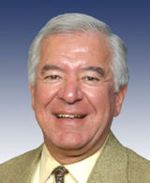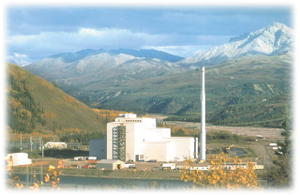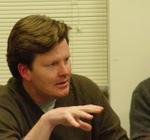It is clear that hydrocarbon interests are going to be our political enemies in The War Against Oil.
It does not matter whether Democrats or Republicans represent these interests. They see energy as a zero-sum game, and any gains from alternatives will come out of their districts. They’re right.
But this doesn’t mean that all their concerns are bogus. Take Nick Rahall‘s claim that wind power kills birds. Fast-moving turbines can kill birds. But so can cars. Which kills more? Anyone want to hazard a guess?
We should study the impact of wind turbines on bird life. We should work to mitigate that impact. But we also need to study other causes of bird death as well. Rahall’s bill, naturally, does not consider any of this.
He’s just tilting at windmills.
That’s because Rahall is a tool of the coal industry. Coming from
West Virginia, he’d better be. Among Rahall’s "achievements" in his 30
year Congressional career is the creation of a National Coal Heritage area in the southern part of his state.
In some ways this whole blow over wind is a distraction from
Rahall’s real legislative aim, which is to gain enormous federal
subsidies for the use of liquified coal, which the industry calls "clean coal." One idea, also pushed by Democratic Gov. Brian Schweitzer of Montana, is to turn coal into a form of diesel fuel, using a process developed in South Africa and later used in Nazi Germany.
Here is what Rahall told the Times:
“For so many, filthy coal is a dirty four-letter word, These individuals, I tell you, have their heads buried in the sand.”
As the New York Times notes in a recent story, among the
industry’s lobbyists is former House Minority Leader Dick Gephardt.
Gephardt and company are spreading money around Washington liberally.
Rahall has his head up that money pipe.
In order to win the War Against Oil, we have to understand both what
our principles are and who our enemies are. Our principle is the
replacement of hydrocarbons with hydrogen. Our enemy is anyone
representing any other energy source.
Before leaving this subject I want you to look closely at the picture above, which comes from the White House’s 2005 energy budget. There is an enormous amount wrong with this picture — the smokestack, the rural setting. Truly clean energy doesn’t have to be generated far from a city, it can be created right inside a city. And when you site electric plants hundreds of miles from town, you lose half the electricity you generate to the wires taking it to market.
There are two mindsets at work here. One is the assumption that energy has to be dirty. It’s only dirty if it’s using hazardous material. Second the assumption that electricity must be generated centrally. It does not have to be. People can put windmills and solar panels on their homes, schools and offices.
One quick example. For years the MARTA station near my house has had a big problem with pigeons. They’ve tried all sorts of things, including plastic owls, with no success. There’s still bird poo everywhere. Why not windmills? Why not use windmill technology to keep birds from any site you don’t want them landing on or dropping on. And use solar panels anywhere the Sun does shine.













I don’t quibble with the goal, but I do question this philosophy that it’s hydrogen or nothing. That’s like if the US had said in 1941 to the Allies: you guys keep fighting on the ground, we’ll just stay here and work on the atomic bomb. Why aren’t intermediate steps that lower our carbon footprint acceptable? There is no need to get to zero hydrocarbon use, just significantly less use than we have today. Extremism in one’s philosophy is never a good thing.
I don’t quibble with the goal, but I do question this philosophy that it’s hydrogen or nothing. That’s like if the US had said in 1941 to the Allies: you guys keep fighting on the ground, we’ll just stay here and work on the atomic bomb. Why aren’t intermediate steps that lower our carbon footprint acceptable? There is no need to get to zero hydrocarbon use, just significantly less use than we have today. Extremism in one’s philosophy is never a good thing.